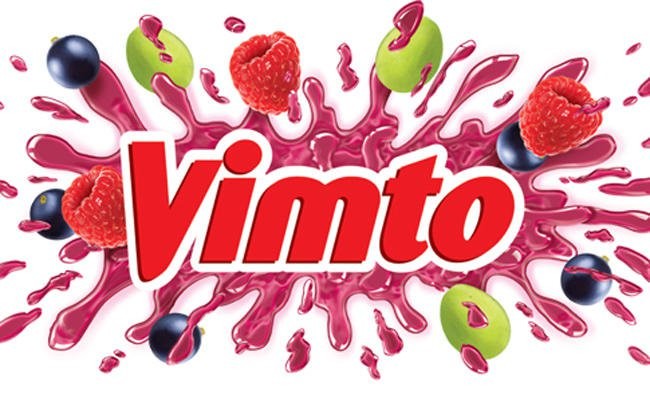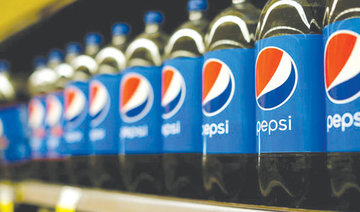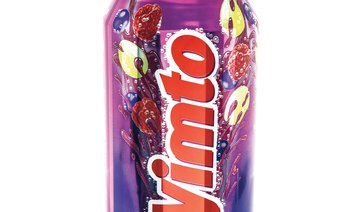LONDON: There would not appear to be much to link the rainy northwest of Britain and the searing heat of the vast desert expanses of Saudi Arabia and the Gulf — and even less likely that the link might come in a bottle.
Eighty years ago, an Indian employee of a family firm named Abdulla Aujan & Brothers introduced his bosses to a cordial drink from Britain which, he explained, had become very popular in India, which was then still a British colony.
The drink was a hit with the bosses too, and so began one of the most enduring love affairs between the Gulf region and Britain.
The drink was Vimto, a sugary blend of fruits, berries and secret herbs that was initially sold as a medicinal tonic but is now the beverage of choice in the Middle East, especially during Ramadan. Indeed no self-respecting host would consider not having a jug of thirst-quenching iced Vimto on hand ready for Iftar and suhoor.
Eating dates may be the traditional way to break the fast, and coincidentally dates are a key factor in Vimto’s popularity. When the drink took off in the Middle East the recipe was tweaked to include the fruit which is dear to all Arab hearts.
“The recipe for Vimto produced in the Middle East contains date paste. That commonality of date flavouring really cemented Vimto as the drink of choice,” said Eddie Stableford, who worked on Vimeo branding in the late 1990s and is now innovation director with Wonderstruck Branding Design.
“Many other drinks have come along over the years and there are cheaper colas out there, but Vimto is the product that delivers.
“It’s a sign of quality. It’s been around a long time so it’s familiar and reassuring. And because it’s got a long history there’s a nostalgia factor. It has fond associations for people.”
A cursory search on social media reveals just how deep the Arab attachment to Vimto has become since that first taste in 1928.
“Is it really Ramadan without Vimto?” asked one fan on Twitter, while another posted misty-eyed reminiscences about watching his mother pour Vimto cordial into a jug full of ice in preparation for the end of prayers signalling that Iftar could begin.
While Vimto is popular year-round, sales really go through the roof at Ramadan. In fact almost three quarters of Vimto’s Middle East sales occur during the month of fasting and it has at times proved necessary to restrict customers to two bottles apiece to ensure supplies do not run out.
It is easy to see why. At the end of a long and tiring day without sustenance, the sugar boost in Vimto provides an instant pick-me-up.
Vimto arrived in the Middle East in 1928 but it was invented 20 years earlier by John Noel Nichols, a wholesaler trader of herbs, spices and medicines in Manchester, the northwestern English city that was at the heart of the Industrial Revolution.
He launched his new concoction as Vimtonic, a herbal tonic to give “vim and vigour” to those who drank it, but before long the name was shortened to Vimto. It was registered as a medicine and the cordial could be diluted with hot, cold or soda water. Advertisements from those early years claimed it “builds up the system” and “eliminates that out-of-sorts feeling.”
In the early 1920s, Richard Goodsir, a representative of the Kiwi boot polish company and a friend of John Noel Nichols, took a few samples of Vimto cordial to India with him for local bottling plants to try out. There was a readymade market on hand in the form of British troops, but the Indian population also developed a liking for Vimto and its popularity soon spread to neighboring parts of the British Empire, Ceylon (now Sri Lanka) and Burma (now Myanmar).
So when Indians began flocking to the Gulf to take up clerical jobs, naturally many of them took some Vimto cordial with them, which is how Abdulla Aujan & Brothers in Saudi Arabia came upon it.
They soon saw its potential. Invented at the height of the anti-alcohol Temperance movement in Britain, it trumpeted its non-alcoholic content, making it both suitable and appealing to Muslim consumers. The company struck a deal to become sole importers and distributors of the cordial.
It was shipped in crates from Salford, just outside Manchester, offloaded in Bahrain and transported around the Arabian peninsula in dhows. In 1979 Aujan & Brothers began producing Vimto under license at a factory in Dammam.
“A member of the Nichols family went out to Saudi Arabia and personally handed over the recipe, which remains a family secret to this day — and yes, the people who know the recipe never travel together,” said Stableford.
Today, Vimto is available in 85 countries and counting, and in 38 out of 40 Muslim countries. But Saudi Arabia is still the biggest non-domestic market, with Vimto-lovers consuming 52 million bottles a year of it in cordial, still (ready-diluted) and fizzy form, although the cordial remains most popular by far.
For the makers of Vimto, success has been sweet indeed — literally doubly so in the Middle East. The Vimto sold there is double concentration to cater to the region’s extra sweet tooth.
The next biggest non-domestic markets are Kuwait and the UAE. Within Saudi Arabia, Vimto has a 90 percent share in the concentrated drinks market.
Even adverts for Vimto — Aujan launch a new campaign each year on Arab satellite TV stations — have achieved cult status.
In the 1990s, Vimto expanded into continental Europe and into confectionery. But the war in Yemen has disrupted distribution there because supply routes are under blockade. No Vimto concentrate was shipped there in December.
Change in the Saudi economy is expected to mean a slowdown in sales this year with profits for 2018 not expected to exceed the low single-digit mark.
On the other hand, UK sales were up nine percent as of November 2017 while revenues in Africa are expected to show a 20 percent increase.
However, Nichols — still the owners of Vimto — say the company was well-prepared for the introduction of tax on sugary drinks in Saudi Arabia and the UAE.
Regional turmoil notwithstanding, it seems Vimto will continue to keep its customers sweet.
“There’s a lot of choice out there these days but people love Vimto because they know it, they recognize it and they trust it,” said Stableford. “It does exactly what a brand should do. It’s the real deal.”
Vimto: A Saudi love story in a bottle
Vimto: A Saudi love story in a bottle

Vietnam police find frozen tiger bodies, arrest two men

Vietnamese police have found two dead tigers inside freezers in a man’s basement, arresting him and another for illicit trade in the endangered animal, the force said Saturday.
The Southeast Asian country is a consumption hub and popular trading route for illegal animal products, including tiger bones which are used in traditional medicine.
Police in Thanh Hoa province, south of the capital Hanoi, said they had found the frozen bodies ot two adult tigers, weighing about 400 kilograms (882 pounds) in total, in the basement of 52-year-old man Hoang Dinh Dat.
In a statement posted online, police said the man told officers he had bought the animals for two billion dong ($77,000), identifying the seller as 31-year-old Nguyen Doan Son.
Both had been arrested earlier this week, police said.
According to the statement, the buyer had equipment to produce so-called tiger bone glue, a sticky substance believed to heal skeletal ailments.
Tigers used to roam Vietnam’s forests, but have now disappeared almost entirely.











